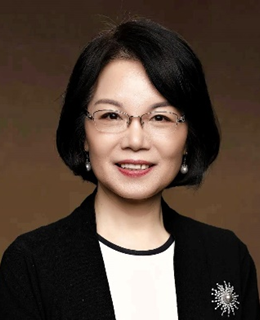
Peking University Chair Professor
Dean of the College of Future Technology
Associate editor of New England Journal of Medicine
Education and training
1979–1984 M.D., Tong-Ji Medical University, Wuhan, China (with honors)
1985–1987 Residency, Internal Medicine, Tong-Ji Medical University
1987–1988 Ph.D. Student, Physiology, College of Life Sciences, Peking University
1991–1995 Ph.D., Physiology, School of Medicine, University of Maryland, USA
Positions
1988 – 1989 Postdoctoral Fellow, Medical School, University of Puerto Rico
1990 – 1991 Postdoctoral Fellow, Laboratory of Cardiovascular Science (LCS), National Institute on Aging (NIA), NIH, USA
1992 – 1996 Staff Scientist, LCS, NIA, NIH, USA
1996 – 2003 Investigator, LCS, NIA, NIH (Unit Head), USA
2003 – 2010 Senior Investigator with tenure, LCS, NIA, NIH (Seciton Head), USA
2010 – 2020 Chair Professor and the Director, Institute of Molecular Medicine, Peking University, Beijing, China
2020 – present Chair Professor and the Director, College of Future Technology, Peking University, Beijing, China
2014 – present Associate Editor for the New England Journal of Medicine (as a part-time employee of the Massachusette Medical Society, Boston, USA)
Achievements
• Richard J. Bing Award for Young Investigator (finalist) at XVI World Congress of the ISHR, Greece (1998)
• NIA Staff Recognition Award, Baltimore, Maryland, USA (2001)
• Chang-Jiang Scholarship issued by the Chinese Ministry of Education (2002)
• Young Investigator Award issued by National Natural Science Foundation of China (2003)
• NIA WSA Investigator Award, Baltimore, Maryland, USA (2006)
• NIA Employee Recognition Award, Baltimore, Maryland, USA (2009)
• ISHR President’s Distinguished Lecture, Bordeaux, France (2015)
Translational Medicine: Enabling Drug Discovery and Development
Rui-Ping Xiao, College of Future Technology, Peking University, Beijing China
Transmembrane receptors are important drug targets, with G protein-coupled receptors (GPCRs) being the largest superfamily. Traditionally, it was believed that each receptor couples with only one type of G protein, but we discovered that cardiac β2AR interacts with both Gs and Gi proteins. Notably, the Gi coupling of β2AR confers cardioprotective effects, while prolonged activation of β1AR leads to cardiomyocyte death through CaMKII activation, instead of the conventional cAMP-PKA pathway. Based on these findings, we proposed a strategy combining β2AR agonists with β-blockers for heart failure treatment. We have designed and screened β2AR-specific agonists, one of which has successfully completed a Phase I clinical trial.
Receptor tyrosine kinases constitute another major family of transmembrane receptors. Our research revealed that prolactin signaling is involved in the pathogenesis of adenomyosis and endometriosis. We thus developed HMI-115, a monoclonal antibody targeting the prolactin receptor, to treat these prevalent and currently incurable conditions in women. The interim analysis of a global Phase II clinical trial has demonstrated that HMI-115 significantly improves patients' quality of life, with an excellent safety profile, avoiding the side effects commonly associated with sex hormone-based treatments. HMI-115 holds great potential as a transformative therapy for adenomyosis and endometriosis.